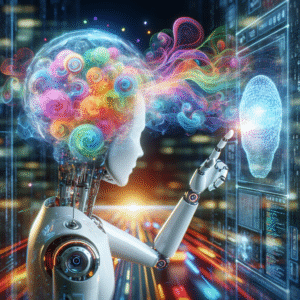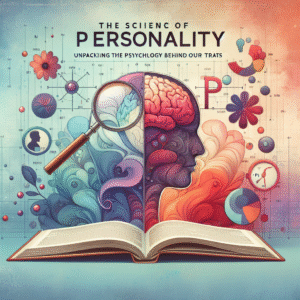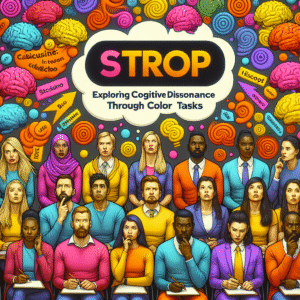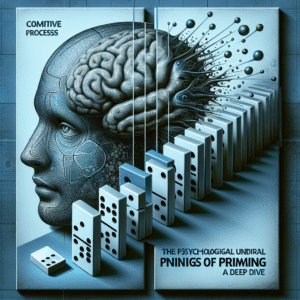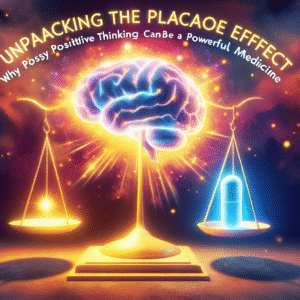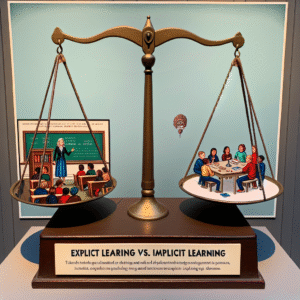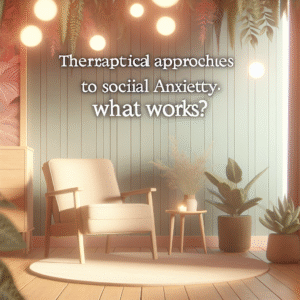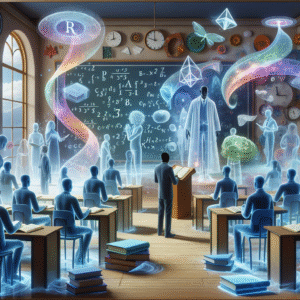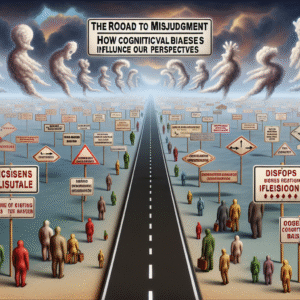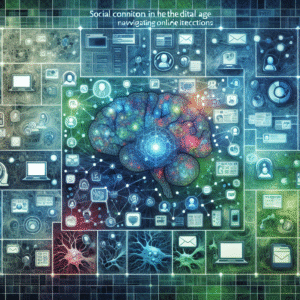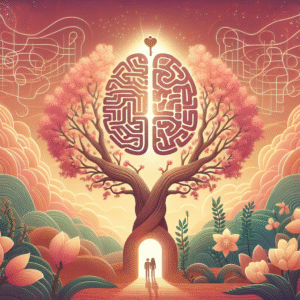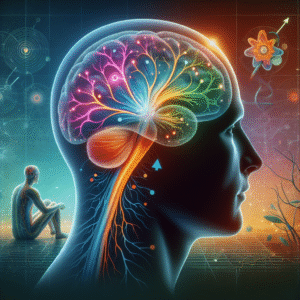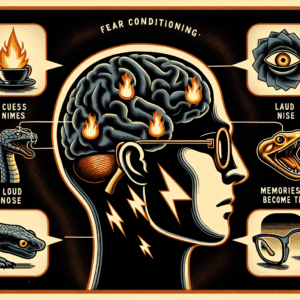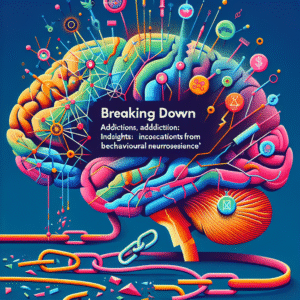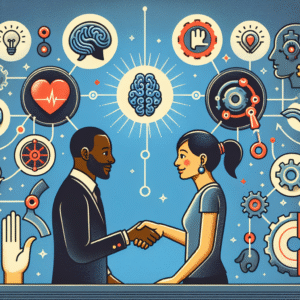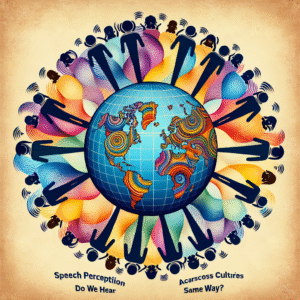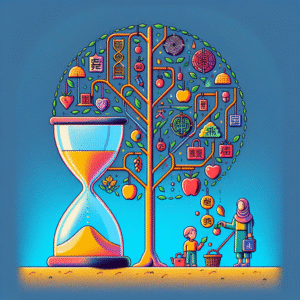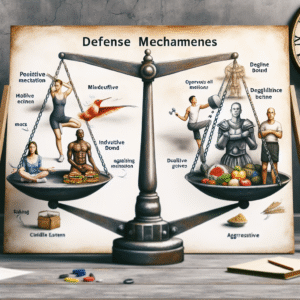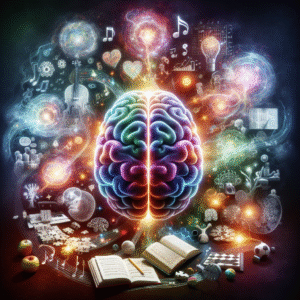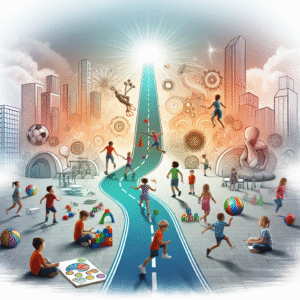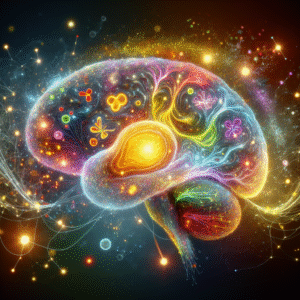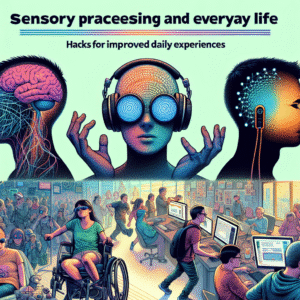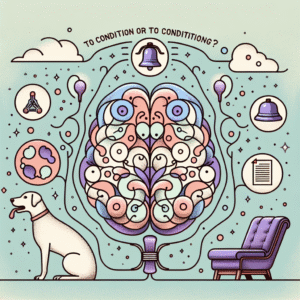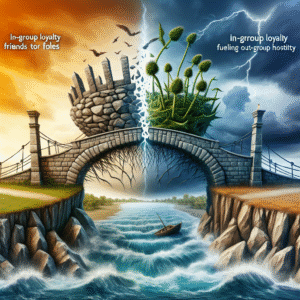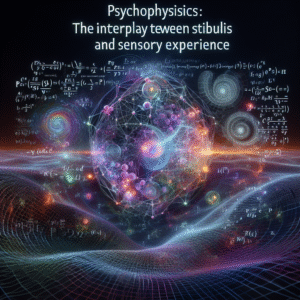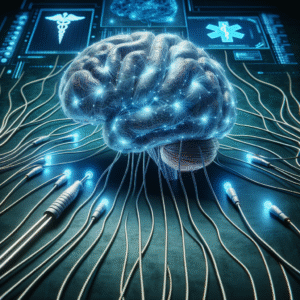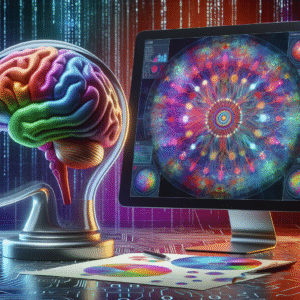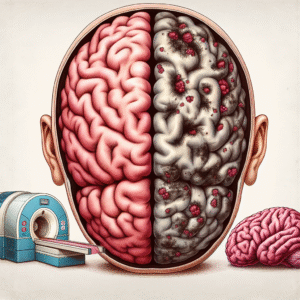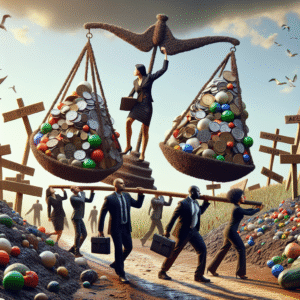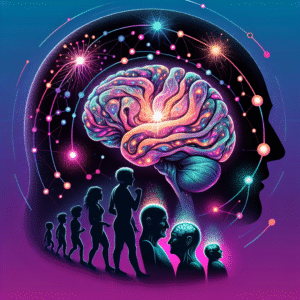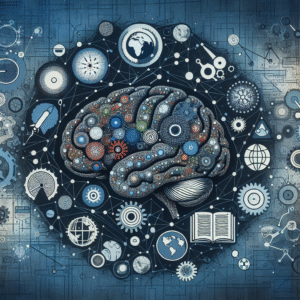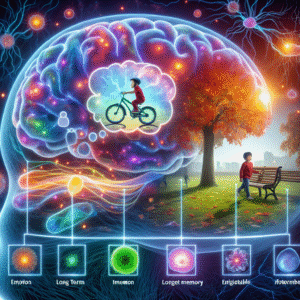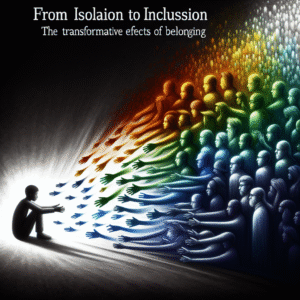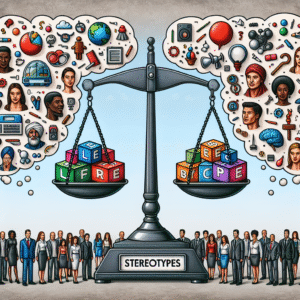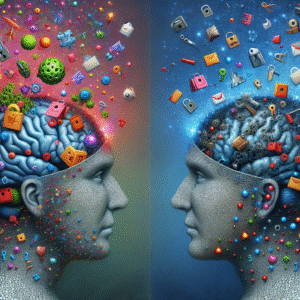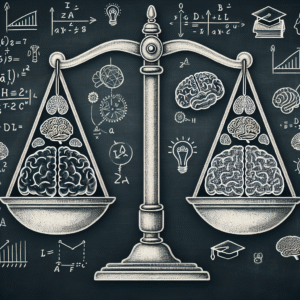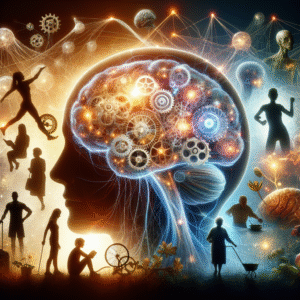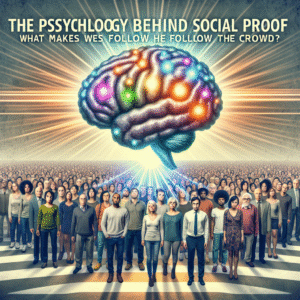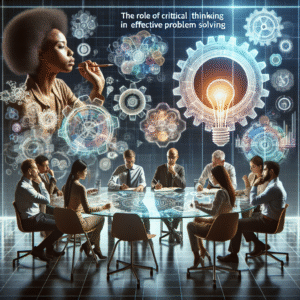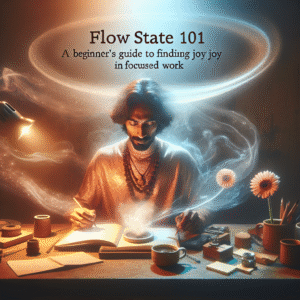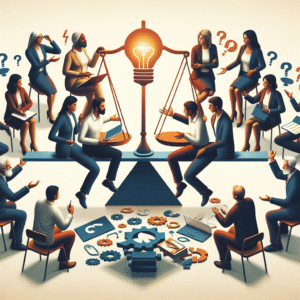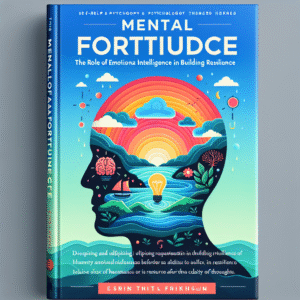Introduction Have you ever experienced a strong emotional response to a life event—be it a traumatic incident, a sudden change, or a major life transition? At first, the shock feels overwhelming, but gradually, with time, that shock dissipates. This phenomenon is not merely a magical process; it’s a psychological mechanism known as habituation. Beyond the Initial Shock: Exploring the...
Social cognition
Introduction In an age where multitasking has become the daily norm, the ability to focus has never been more crucial. From the Classroom to the Workplace: The Challenge of Divided Attention is a contemporary issue that affects individuals across various sectors. As students transition from the structured environment of academia to the dynamic landscape of professional life, they face...
Introduction: The New Age of Connectivity In today’s digital landscape, social media platforms have transcended their original purpose of mere communication to become powerful tools that shape human behavior and social patterns. As we delve into the intricate relationship between social media and behavior patterns, it becomes evident how deeply interwoven our online interactions are with our daily lives....
Introduction In an age dominated by digital distractions—from incessant notifications to 24/7 connectivity—mastering the skill of selective attention is not just beneficial; it’s essential. Did you know that the average person checks their phone over 90 times a day? This constant barrage of stimuli often leads to overwhelm and inefficiency, making the ability to focus more crucial than ever....
Introduction Imagine sitting in a room, the air heavy with tension. Two people are on opposing sides of an argument, their emotions boiling just below the surface. This scenario is all too familiar in both personal and professional settings. The question then arises: How can we transform these conflicts into connections? The answer lies in harnessing emotional intelligence (EI)...
Introduction In a world increasingly driven by self-interest and personal gain, the acts of kindness and generosity stand as a beacon of hope. From small gestures of goodwill to monumental philanthropic efforts, the spirit of giving back reverberates through communities and leaves a profound impact on society. So, what fuels this altruistic fire in the hearts of the most...
Introduction In a world increasingly dominated by technology, the way we perceive, interpret, and interact with our surroundings is evolving at breakneck speed. The Intersection of Visual Attention and Technology: Where AI Meets Human Perception is not just a trending topic; it is essential for understanding our future. As artificial intelligence integrates with human cognitive processes, we need to...
Introduction Have you ever wondered why some people thrive in social situations while others prefer solitude? Or why certain individuals take the lead in groups while others play supportive roles? These questions about our differences lead us to delve into the heart of The Science of Personality: Unpacking the Psychology Behind Our Traits. Understanding personality is not just an...
Introduction Imagine you’re sitting in a cozy café, glancing at a menu filled with colorful dishes. Suddenly, you notice a friend struggling to name the colors of the food items rather than their actual names. This scenario isn’t just a funny anecdote; it’s a fascinating glimpse into a cognitive phenomenon known as the Stroop Effect. In this article, we’ll...
Introduction Imagine walking into a room where the scent of freshly baked cookies wafts through the air. Suddenly, memories of childhood afternoons spent in the kitchen flood your mind, sparking a wave of nostalgia. This simple experience illustrates a powerful psychological phenomenon known as priming. The Psychological Underpinnings of Priming: A Deep Dive reveals the nuances of how our...
Introduction Imagine stepping into a doctor’s office, where you’re handed a sugar pill with the promise that it will alleviate your chronic pain. Surprisingly, after taking it, you feel significantly better. This phenomenon, known as the placebo effect, illustrates the mind’s remarkable power over the body. Unpacking the Placebo Effect: Why Positive Thinking Can Be a Powerful Medicine goes...
Introduction In our ever-evolving world, the ways we absorb and apply knowledge are more vital than ever. Explicit Learning vs. Implicit Learning: What’s the Difference? is a question that’s crucial for educators, students, and professionals alike. Understanding these two styles of learning not only enhances our ability to teach and learn effectively, but it can also affect how we...
Introduction Social anxiety can feel like an invisible shackle that binds people in their own thoughts, rendering them unable to connect or communicate effectively. With the increasing prevalence of social anxiety in today’s hyper-connected world, finding effective therapeutic approaches has never been more urgent. In this article, we delve deep into the question: Therapeutic Approaches to Social Anxiety: What...
Introduction Imagine walking into a classroom that feels vibrant and alive, where students are not just passive recipients of information but active participants in their learning journey. As educators and learners, we often focus on explicit learning—the kind of knowledge acquired through direct instruction and formal education. However, there’s a quieter, subtler force at play: implicit learning. This phenomenon...
Introduction In a world overflowing with information, making sound judgments is more crucial—and more challenging—than ever before. Every day, we face decisions about our health, finances, relationships, and even politics. Yet, despite our best intentions to make rational choices, cognitive biases often hijack our thought processes. The Road to Misjudgment: How Cognitive Biases Influence Our Perspectives explores these cognitive...
Introduction In today’s interconnected digital landscape, the way we perceive and interact with one another has undergone a dramatic transformation. The phrase "Social Cognition in the Digital Age: Navigating Online Interactions" encapsulates a crucial aspect of modern psychology—understanding how our social interactions are influenced by digital communication platforms. As we delve deeper into this topic, we uncover the profound...
Introduction Imagine waking up each day with a profound understanding of your emotions—having the tools to articulate your feelings, connect with others, and foster deep, meaningful relationships. This is the power of emotional processing, an often overlooked yet invaluable skill that serves as the foundation for both personal growth and healthy relationships. In this article, we will explore how...
Introduction Imagine a world where the brain is not a static organ but a dynamic powerhouse capable of change, adaptation, and recovery. This is not just a scientific fantasy; it’s a profound reality grounded in the concept known as neuroplasticity. Understanding neuroplasticity: how changes in brain chemistry influence recovery and growth is an essential journey for anyone interested in...
Introduction Imagine this: a simple sound, perhaps a door slam, sends you spiraling into a whirlwind of anxiety or panic. You find yourself paralyzed, heart racing, and sweat beading on your forehead, with no logical explanation. This visceral reaction comes not from a present danger, but rather from a memory—a connection forged through Fear Conditioning: When Memories Become Triggers....
Introduction Have you ever found yourself standing at the crossroads of aspiration and reality, feeling the weight of your dreams pressing heavily against the boundaries of your present? From Dreams to Reality: A Personal Journey of Self-Actualization serves as both a compass and a roadmap, guiding you through the intricate process of turning vague ambitions into tangible achievements. In...
Introduction Imagine you’re walking down a busy street, and suddenly, a person collapses. A crowd gathers around, yet no one seems to act. This scene isn’t a fictional encounter; it’s a stark reality known as the "bystander effect," a psychological phenomenon that sheds light on why individuals often fail to intervene in emergencies. Inaction in emergencies: how the bystander...
Introduction Addiction is not merely a personal failing; it is a complex, multifaceted condition deeply rooted in the brain’s wiring and chemistry. With statistics showing that approximately 21 million Americans suffer from at least one addiction, understanding this phenomenon through the lens of behavioral neuroscience has never been more essential. Breaking Down Addiction: Insights from Behavioral Neuroscience sheds light...
Introduction In a world increasingly defined by rapid change and digital connectivity, the ability to empathize—truly understand and share the feelings of others—has emerged as a vital skill. Whether in leadership, customer service, or team collaboration, harnessing the power of empathy can significantly elevate interpersonal relations and overall organizational success. But how do we cultivate this essential skill? The...
Introduction Imagine sitting in a bustling café in Tokyo, listening to the rhythmic hum of conversations around you. Now, imagine doing the same in a quaint pub in Dublin or a vibrant marketplace in Marrakech. While the sounds may be uniquely tied to their respective cultures, do we truly perceive speech in the same way? This question lies at...
Introduction Imagine a child coating their crayons across a blank sheet of paper while articulating their thoughts aloud. Now, imagine that same child effortlessly communicating in multiple languages, adapting and understanding cultural nuances without hesitation. This scenario brings us to a fascinating concept in linguistics known as the Critical Period Hypothesis (CPH). The question arises: The Critical Period Hypothesis:...
Introduction In the whirlwind of modern life, stress is a common companion. From daily pressures to unexpected life events, navigating emotions can feel like walking a tightrope. In moments of overwhelming anxiety or emotional turmoil, many people turn to coping strategies—psychological tools designed to help manage difficult feelings. Among these strategies are defense mechanisms, often employed subconsciously to protect...
Introduction The journey to recovery from an injury or debilitating condition can often feel like a labyrinth, fraught with challenges and uncertainties. For countless individuals, the integration of sensorimotor control into rehabilitation programs has emerged as a beacon of hope, illuminating an effective pathway to recovery. The impact of sensorimotor control on rehabilitation is profound and transformative, influencing emotional...
Introduction In an age of information overload, improving your cognitive abilities is not just beneficial; it’s essential. Have you ever walked into a room and forgotten why you went there? Or struggled to remember a simple phone number just a few seconds after hearing it? If so, you are not alone. Working memory—the ability to hold and manipulate information...
Introduction Motor learning in children is not just about acquiring physical skills; it’s about laying the groundwork for lifelong success. Whether it’s throwing a ball, mastering the art of writing, or simply learning to ride a bike, the experiences children have during their early years create lasting effects on their physical and cognitive development. In today’s fast-paced world, understanding...
Introduction In a world increasingly defined by its complexities and challenges, the role of caregivers has never been more crucial. They are the unsung heroes, tirelessly providing support and love to those in need. However, as rewarding as this role can be, it also comes with a significant emotional toll. When compassion fatigue sets in, caregivers often find themselves...
Introduction Imagine walking through an art gallery. As you glance at the paintings, your brain instinctively organizes the visual chaos into coherent images, recognizing patterns and relationships between shapes and colors. This remarkable ability to perceive holistic images instead of disconnected elements is no coincidence; it derives from the principles of Gestalt psychology. In this article, we will explore...
Introduction Have you ever stared at an image and suddenly felt like it’s playing tricks on your mind? The phenomenon of seeing double—where two images seem to merge into one—isn’t just a byproduct of a tired eye; it’s a fascinating exploration of our perceptual system. In "Seeing Double: The Psychology Behind Perceptual Illusions," we dive deep into the cognitive...
Introduction In a world that often equates happiness with success—where social media posts flaunt idealized moments—you might wonder: is happiness really the ultimate goal? While the pursuit of happiness is certainly a compelling narrative, there’s a richer tapestry of emotions woven into our daily lives, primarily driven by neurotransmitters. In this article, "Beyond Happiness: Exploring the Complex Role of...
Introduction In a world bursting with stimuli, from bustling city noises to the bright glare of smartphones, how we process sensory information profoundly impacts our day-to-day experiences. Understanding sensory processing isn’t just a niche topic; it’s essential for everyone looking to enhance their daily life. In this article, we will explore sensory processing and everyday life through various practical...
Introduction Imagine stepping into a room filled with the sweet smell of freshly baked cookies. For some, this scent evokes warm memories of childhood, family gatherings, or festive holidays. For others, it might trigger an overwhelming sense of anxiety due to past experiences. This powerful interplay between stimuli and emotional responses is at the heart of classical conditioning, a...
Introduction In an increasingly polarized world, the phenomenon of "From Friends to Foes: How In-Group Loyalty Fuels Out-Group Hostility" has never been more relevant. Social dynamics are shifting as we witness friends turning into adversaries, communities splintering, and societies becoming more divisive. At the heart of these transformations lies a fundamental human trait: loyalty to one’s group. Understanding this...
Introduction Imagine savoring a piece of chocolate—its sweet, rich flavor melting in your mouth. You might think your experience is entirely subjective, embedded in your personal taste. But behind this seemingly simple pleasure lies a complex dance of psychology and physics that reveals much about human perception. Welcome to the world of psychophysics: the interplay between stimuli and sensory...
Introduction Have you ever noticed how a small act of gratitude can create ripples far beyond its initial impact? The phrase "thank you" may seem simple, but its effects are profound and far-reaching. In our fast-paced world, where interactions often feel superficial, recognizing the importance of gratitude is more essential than ever. This article explores The Ripple Effect of...
Introduction Imagine a world where doctors could effectively diagnose mental health conditions, monitor neurological disorders, and even interface with machines using just brain waves. This vision isn’t merely a science fiction dream; it’s rapidly becoming a reality, thanks to the remarkable advancements in electroencephalography (EEG). Harnessing brain waves: how EEG is shaping the future of medicine is not just...
Introduction Imagine peering into the intricate machinery of the human mind, unearthing the secrets behind thoughts, emotions, and decision-making processes. Functional Magnetic Resonance Imaging (fMRI) offers us this unprecedented glimpse into our internal world. As a powerful tool in neuroscience, fMRI has transcended traditional boundaries, paving the way for breakthroughs in psychology, psychiatry, and cognitive science. In this article,...
In an age where the relentless pace of modern work threatens to overwhelm us, the concept of mindfulness has emerged not just as a trendy buzzword, but as a powerful approach to workplace wellness and productivity. Awareness in Action: How Mindfulness Can Enhance Your Professional Life is not just a phrase; it’s a call to explore the profound impact...
Introduction Imagine a world where doctors can peer into the living brain, uncovering the mysteries of neurodegenerative diseases before they wreak havoc on mental and emotional well-being. This isn’t science fiction; it’s the reality crafted by advanced brain imaging technologies. The impact of brain imaging on diagnosing and treating neurodegenerative diseases has transformed both the medical landscape and patient...
Introduction In a world filled with choices, from what to wear to which career path to pursue, the act of decision-making has become a daunting task for many. You might find yourself entangled in the overwhelm of countless options, leading to a phenomenon known as decision fatigue. When decisions weigh you down, it affects not just your choices, but...
Introduction Imagine your brain as a dynamic city, constantly being rebuilt and redesigned, with roads and buildings reshaping themselves according to the needs of their inhabitants. This flexible ability isn’t just a poetic illustration; it reflects the phenomenon known as neuroplasticity: the brain’s ability to adapt and evolve at any age. In recent years, neuroplasticity has emerged as a...
Introduction In today’s fast-paced world, the boundary between our physical and mental health often feels blurred. This bewildering intersection gives rise to a complex tapestry of conditions known as psychosomatic disorders—where psychological stress manifests as physical symptoms. This article, Navigating the Labyrinth: How to Diagnose and Treat Psychosomatic Disorders, aims to illuminate the intricacies of these often-misunderstood conditions, equipping...
Introduction Have you ever marveled at how you can recognize a friend from a distance, understand complex ideas, or even recall childhood memories tied to specific words? These cognitive feats hinge on the intricate neural pathways of human memory, particularly semantic memory. This essential cognitive function enables us to make sense of the world around us by organizing and...
Introduction Have you ever found yourself lost in thought, reminiscing about a cherished moment from your past? Perhaps it was a childhood birthday party filled with laughter or a vacation that seemed to stretch into eternity. Our ability to conjure these vivid memories is a striking display of what psychologists call episodic memory. Understanding how our minds navigate this...
Introduction In the intricate dance of human relationships, emotional attachment styles play a pivotal role, illuminating the paths we traverse in love, friendship, and familial bonds. Understanding these styles, effectively recognizing them within ourselves and others, offers profound insights into our interactions and emotional well-being. Recognizing Emotional Attachment Styles: What They Reveal About You is not just a theoretical...
Introduction Have you ever found yourself transported back in time by a simple scent or a melody? These vivid recollections often hinge on the emotions tied to our memories. Understanding the role of emotion in long term memory isn’t just a psychological curiosity; it’s essential for grasping how we construct our identities and navigate our lives. This article delves...
Introduction In an age dominated by social media and constant connectivity, feelings of isolation have paradoxically surged. The quest for belonging amidst the chaos of modern life can feel daunting. Understanding the journey From Isolation to Inclusion: The Transformative Effects of Belonging is not just a philosophical endeavor; it’s essential for mental well-being, community building, and personal growth. This...
Introduction Have you ever wondered how certain attitudes or biases shape our perceptions of others? The power of stereotypes wields immense influence over our lives and decisions in ways we often fail to recognize. From the workplace to interpersonal relationships, stereotypes can define what we see, how we act, and even how we are treated. As we delve deeper...
Introduction Have you ever placed your keys in a "safe" spot only to forget where you put them moments later? This common forgetfulness isn’t just an annoyance—it highlights the intriguing complexity of our cognitive processes. Understanding the intertwining aspects of forgetfulness and function, particularly focusing on the role of short-term memory in learning, is pivotal for students, educators, and...
Introduction Have you ever wondered why you tend to repeat the same relationship patterns, even when you swear you’d do things differently? Understanding how childhood experiences shape adult relationships can be a transformative journey. By delving into our past, we can unravel the emotional scripts learned in our formative years and reclaim the power to change our relational outcomes....
Introduction Imagine sitting in a classroom, absorbing information from a teacher, with textbooks and notes scattered around you. The teacher, full of enthusiasm, dives into complex concepts, charts, and theories. Yet, instead of feeling enlightened, you feel overwhelmed. This feeling is more common than you might think. The interaction between cognitive load and working memory plays an essential role...
Introduction Imagine you’re in a crucial business meeting. You’re tasked with making high-stakes decisions that could impact your entire company. As the discussion unfolds, you suddenly become aware of an overwhelming sense of confidence, perhaps unexplainably so. Unbeknownst to you, this feeling might not stem from your extensive experience or preparation; instead, it could be influenced by cognitive biases...
Introduction Every day, we make dozens of choices that reflect our preferences, from the products we buy, the restaurants we choose, to the opinions we embrace. But often, our decisions are less about our personal preferences and more about what others think or do. This phenomenon is known as social proof—an essential psychological concept that explains why we tend...
Introduction In a world brimming with challenges, the ability to solve problems efficiently has never been more crucial. From personal dilemmas to complex organizational issues, the undercurrents of effective problem solving flow through the veins of critical thinking. The role of critical thinking in effective problem solving is not just important; it is essential. Imagine navigating through a dense...
Introduction: Unlocking the Secret to Joy in Work Imagine a time when you felt so completely absorbed in your work that hours went by unnoticed. Whether you were writing, painting, coding, or even engaging in a mind-challenging strategy game, you entered a flow state—an exhilarating feeling of creativity and productivity. This experience isn’t just a fleeting moment; it’s a...
Introduction Imagine sitting in a boardroom packed with eager minds, all vying for the best solution to a complex problem. Each person brings unique perspectives, experiences, and biases. However, the very dynamics within this group can determine whether they innovate brilliantly or spiral into confusion. Welcome to the fascinating world of group dynamics and decision-making, where the interplay of...
Introduction In today’s fast-paced and often unpredictable world, the ability to bounce back from adversity is more crucial than ever. Mental resilience, often referred to as mental fortitude, is the key to navigating life’s challenges—be it in the workplace, personal relationships, or mental health. Yet, what underpins this resilience? Emotional intelligence (EI), the ability to understand and manage our...





